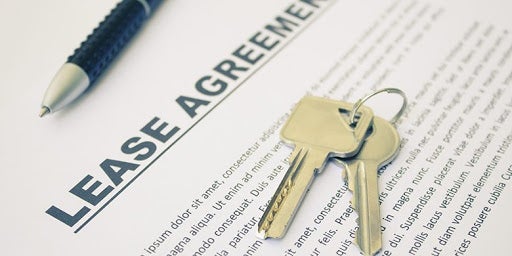
You may need to get out of your commercial lease or find yourself in a situation where you purposefully need default on your lease. In other cases, maybe business hasn't thrived the way you hoped, so you find yourself financially strapped and unable to meet the economic obligations of your lease. Finally, you might unknowingly default on your lease by violating one or more of the terms listed. It's always in your best interest to review your lease thoroughly to understand what things might cause you to default, but commercial leases are long with a lot of fine print, so you may not always remember. This guide offers some of the common ways tenants default on commercial leases and potential remedies for each situation.
Common Reasons for Tenant Default on a Commercial Lease
Common Reasons for Tenant Default on a Commercial Lease
A commercial tenant might default on their lease for a wide variety of monetary and non-monetary reasons. Those reasons which occur most frequently are listed below:
Failure to Pay Rent or Other Monies Due Under the Lease
Once you pass your due date for paying rent, common area maintenance (CAM) fees, or any other charges you owe your landlord on a monthly basis, you are technically in default of your lease contract. Depending on the situation and your landlord, you might have the chance to catch up before he or she takes any action against you.
Breach of Your Tenant Maintenance and Repair Responsibilities
Your lease should clearly outline what you need to do to maintain your commercial property. On a broad level, you likely must keep your space clean and immediately report the need for any repairs, especially those which, if left unfixed, can cause severe property or structural damage. More specifically, you might be required to keep walls and carpets cleans, repair flooring, lighting, wall coverings and any plumbing fixtures. Your landlord will typically need to handle things like electrical or HVAC issues, especially those which might impact an entire office building. When you don't properly maintain your commercial space, you will likely be in default.
Abandonment of Commercial Space
Vacant commercial spaces invite crime, can scare potential lenders, and can make multi-unit spaces less desirable for other tenants. These are some of the reasons your lease likely has a clause about abandonment (usually called a go dark clause), making it so you default if you don't use your property after a certain amount of time. In fact, some landlords will try to include a clause about continuous operation in their leases. Whether or not you default on your lease in this type of situation is highly dependent on how you negotiated your lease.
Breach of Permitted Use
When you sign a commercial lease, you agree to legal commercial use of the property. If you try to live in the space or you use it for illegal purposes, you will be in breach of your contract. You can be in default if you engage in any activity not permitted in the lease, regardless of criminal legality. Selling stolen merchandise, selling illegal designer knockoffs, and selling or producing illegal drugs are all examples of activities which can lead to a default in your lease.
Remedies for Default in a Commercial Lease
The ideal situation for handling a default is to avoid them altogether. This isn't always easy if your default is a result of financial struggles or insolvency. Yet, you can negotiate your lease in such a way to ensure you are using the space the way you want and need and when you want. It's also in your best interest to ensure you've carefully read and negotiated your repair and maintenance responsibilities. When you default on your commercial lease, you will surely have consequences.
A landlord can retake possession of the commercial space in three ways including court-guided action such as eviction, a voluntary surrender of the space, and by proving abandonment. More specific remedies include:
Eviction
When you default on your lease, your landlord has the right to evict you; however, they must do so by following the letter of the law. Although exact laws vary from state to state, your landlord must go through an entire process which begins with a three or five-day notice, giving you the opportunity to make changes or pay any back rent before they file for eviction. Once they file, you have chance to contest which means you can go to court.
If you don't take any action, at some point, you can expect to get locked out of your property. If you are in New York, you may have a Good Guy Clause, in which the landlord has agreed to a small amount of personally guaranteed money in order to get the space back (the eviction process in NY is extremely lengthy).
Injunctions
Although it's rare and extreme, your landlord can get a court-order to force you to make changes when you default on your lease. Your landlord might use this to force continuous operation or enforce specific clauses about use.
Release Tenant Obligations
In some cases, if you communicate with your landlord, he or she might release you from your lease obligations without penalty.
If you need to default for financial reasons or perhaps you have to relocate for family or personal reasons and want to move your dissolve your business, or you have defaulted already, your landlord might decide it's best to send you on your way and not engage in costly lawsuits or court processes.
Re-take Possession and Pursue Lease Obligations
Another landlord remedy includes taking possession of the space, but not releasing tenant obligations. This might happen if a tenant has been engaging in illegal activities in the commercial space. The landlord will take control of the office or retail space, but the tenant remains responsible for rent, CAM fees, and other expenses required to lease the space to a new tenant.
Once the landlord rents out the space, the tenant is typically only responsible for any difference owed after new rents and fees are subtracted.
Sue the Tenant for Damages and/or Owed Money
If your landlord knows you have the means to pay your commercial rent, he or she might not do anything to your property in terms of possession. Instead, your landlord might file a lawsuit to collect money for damages. Rental acceleration is common in many lease defaults. This means your landlord will sue you for all money owed for the remainder of your lease.
Distrain For Rent
In this case, if the tenant has sufficient goods left in the space that satisfies the rent arrears (amount of rent that should have been paid), the landlord is able to seize the goods and hold them as a form of security for payment of rent arrears. T
his right only occurs in the as of non-payment of rent and under no other circumstances. There are a lot of circumstances under which this can be illegal and is therefore not often the first choice of the landlord. Distraining for rent does not terminate the lease.
If the landlord actually chooses to sell the goods of the tenant, this is known as distress. There are very strict procedures set in place for this and the landlord must comply with them. Notice must be provided to the tenant following a distress.
Default Notice: What Is It?
A default notice is a document that is given either to the tenant or the landlord that states that an obligation in the lease is not being complied with. The purpose of a default notice is that the other party is being informed of the fact that there may be an issue with the time frame during which something may be expected – the most common being non-payment of rent.
Other situations that may require a default notice include repairing damage caused by the tenant, certain parking requirements, or other activities that are not permitted by the lease. If the landlord serves the tenant a default notice, it is imperative that action is taken and it is not ignored in order to avoid potential consequences later on. Although rare, the tenant can serve a default notice to the landlord.
This may occur if the landlord has not completed work that was supposed to be completed according to the lease.
Avoiding a Commercial Lease Default
If you believe you will fail to fulfill the duties of the lease, you can either assign or sublet the lease prior to defaulting, or you can attempt to negotiate a termination of the lease in advance of triggering the default.
While your landlord is not under any obligation to comply, fair warning will provide them a better opportunity to fill your space instead of suddenly finding out you cannot live up to the expectations of the lease.
2019 Lease Ref. All Rights Reserved.
